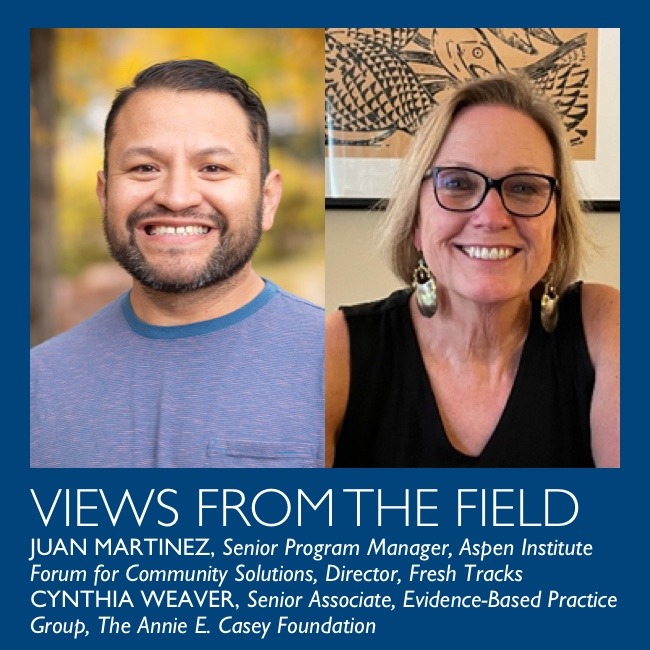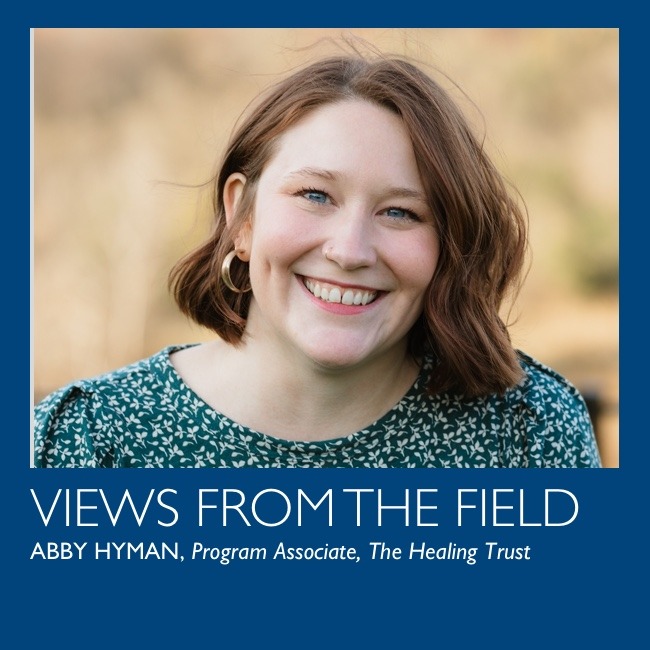Exploring the Tides Foundation’s Efforts to Support Civic Engagement and Protect Reproductive Health
Funders can play a major role in promoting a healthy democracy, and increasingly, grantmakers like the Tides Foundation are investing in civic engagement. To learn more about Tides’ work in this area, along with their support of ballot initiatives on reproductive health, Grantmakers In Health’s Miranda Wesley spoke with the Tides Foundation’s Program Officer of Civic Engagement and Democracy, Beth Huang.
A New Generation of Researchers: Hearing from Youth Leaders on Their Well-Being
Building upon a previous conversation with Juan Martinez of the Aspen Institute and Cynthia Weaver of The Annie E. Casey Foundation on their collaboration on the Youth and Young Adult Well-Being project, the following Q&A features three paid youth consultants who are leading the research initiative as the Youth and Young Adult Well-Being core team. Each team member represents a different cultural affinity group in the well-being project: Desiree Armas from Latine Bienestar, Niara Frankson from Black Expressions of Well-Being, and Zenetta Zepeda from American Indian/Alaska Native.
Lessons from the Washington AIDS Partnership: How to Take Big Risks and Move Quickly to Drive Change
The Washington AIDS Partnership, a collaboration of grantmaking organizations with a mission of ending the HIV epidemic in the Greater Washington region, was founded in 1988 with the support of the Ford Foundation and 20 DC-area foundations. The organization’s charge was to make grants to the community as quickly as possible. At that time, Washington, DC had the fifth-highest HIV rate in the country, and the epidemic was out of control. As the city has made great progress reaching goals set in the DC Ends HIV Plan, the Washington AIDS Partnership determined in 2023 that its role in the fight to end the local epidemic was coming to an end. The organization will officially conclude its work in the first quarter of 2024.
Leading Boldly, Building Trust: Lessons from a Community-Driven Strategic Planning Process
The Horizon Foundation of Howard County, Maryland believes that everyone in our community deserves to live abundant and healthy lives. But there are barriers standing in the way of some of our residents—particularly people of color—from achieving that vision. We know that for too long, inequitable laws, policies, and practices have held back many of our neighbors. The Foundation recently completed a 14-month long strategic planning process to figure out how to address these systemic barriers in a way that centers the voices of our community members who are most impacted. We realized that our work—what we focus on, who we engage with, and how we make decisions—needed to fundamentally change.
Philanthropy’s Impact on Health Care Systems: Supporting the Creation of a Community-Health Worker-Based Chronic Care Management Model in Appalachia
Guided by its mission of “helping people help themselves,” the Claude Worthington Benedum Foundation strategically invests in the creative problem-solving activities of local communities and individuals. For the past decade, the Benedum Foundation has accomplished this mission in its support of a particular health care delivery model: efficient chronic disease management through a medical model leveraging the skills of community health workers in Appalachia. This model provides unique patient care, has shown success for improving the health conditions of a target population, and reduced health care costs—accomplishments that align with the Institute of Health Improvement’s Triple Aim framework.
Engaging Youth to Guide Research on Their Own Well-Being
In 2019, the Annie E. Casey Foundation’s Equity and Inclusion unit hosted a convening with young people from Black, Latinx, and American Indian/Alaska Native (AIAN) cultural affinity groups, along with adults who support the work and leadership of these youth and young adults. The young participants, many of whom were from the Aspen Institute’s Fresh Tracks program, expressed the need for young leaders to be the ones defining youth well-being and finding solutions that help their own communities support the well-being of young people.
A Compass of Indispensable Leadership Attributes to Guide Health Philanthropy
Trends in leadership are changing—just take the Terrance Keenan Institute as an example. When the program started in 2010, it focused on general leadership tactics with topics that ranged from leveraging resources and building partnerships to board dynamics. Since then, the Institute’s curriculum has moved towards a recognition that leaders possess individual strengths that can be embraced to make our organizations and the broader field of health philanthropy more effective.
Healing for Our Healers: Funding Transformational Staff Wellness
The Healing Trust has prioritized support beyond the programmatic check since the early years of our grantmaking in 2003. While the “how” of the funding has changed over time, the “why” has consistently been to support the healing of nonprofit staff. This isn’t tangential to making strategic community-based investments, rather it is the foundation on which meaningful change can emerge. When funders invest in the well-being of the staff of partner organizations, it creates a culture where all people’s needs are prioritized and compassionately met. The nonprofit network thrives when its leaders are well-rested. When staff are well taken care of, the clients benefit by means of an energized supporter who shows up with creativity, patience, compassion, and joy.










